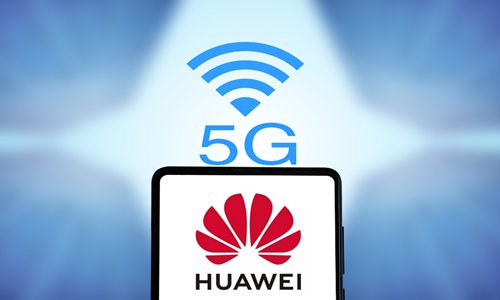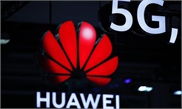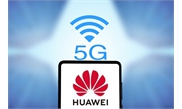
Huawei's simplified site solution plays an important role in accelerating 5G deployment in Switzerland. Photo: IC
Huawei is betting its chance of success in the US on licensing its 5G network technology to US telecom carriers. According to media reports, the Chinese technology giant is currently engaged in early-stage talks with some interested US companies.
The development came after Huawei CEO and founder Ren Zhengfei proposed in an interview last month to license its 5G technology to US companies so that they can build up their own 5G industry.
The offer to share the next-generation 5G technology reflects Huawei's confidence that no one can beat it in the 5G field. Despite Washington's ban, Huawei has been working at full steam to stay ahead of the curve on 5G. Yang Chaobin, president of Huawei's 5G product line, said in June that Huawei would continue to increase investment in the 5G field, and its research and development (R&D) spending would exceed 10 billion yuan ($1.4 billion) this year, with more than 10,000 engineers and experts in 5G R&D.
With such huge human and financial resources, there is no doubt that Huawei's leading edge in 5G technology will become even more unshakable.
While US President Donald Trump announced in April that "The race for 5G is on, and America must win," the sheer fact is that there are no US 5G network suppliers at present. In addition to Huawei, the only other 5G providers are European companies Nokia and Ericsson, which charge much higher prices than Huawei.
As such, the best way for a country to build up its own 5G network is to use Huawei. Yet, in the US, such idea will be unpopular given what has happened between the US and China as well as Huawei.
While Ren has made an unusually generous offer to seek a resolution of the stalemate with the US, and US telecom carriers have expressed their interest, it is still possible that the early-stage talks could bog down due to non-commercial factors. But at least it would still help to form a consensus that Huawei's 5G network dominates the market.
More importantly, Huawei has a clear idea of how a new technology should be used: only a wide range of technology applications could further push forward technological development. This is why Huawei has been trying to sell its 5G network around the world, despite Washington's blacklisting.
In this sense, Huawei's 5G network is not only a best buy for US companies, but probably a must buy.
It turns out that Huawei has successfully overcome the obstacles to expand its 5G business worldwide, with more than 60 5G commercial contracts signed globally so far, according to its latest quarterly results.
The US is still struggling with how to replace Huawei or what else there is beyond Huawei, but in fact the US has no choice unless it is willing to pay extra, wait extra longer or even waste the best opportunity for 5G deployment.
The author is a reporter with the Global Times. bizopinion@globaltimes.com.cn




